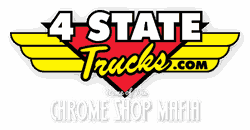Peterbilt 379 Exhaust Kits
Frequently Asked Questions About Peterbilt 379 Exhaust Kits
What exhaust pipe diameter fits my Peterbilt 379, and will aftermarket kits match my existing setup?
Most Peterbilt 379 models use 5-inch diameter exhaust systems, though some older models (pre-1987) may have 4-inch systems. Our exhaust kits are designed for 5-inch applications unless otherwise noted. Before ordering, measure your current exhaust pipe diameter at the turbo outlet or where it connects to the muffler. If you're upgrading from 4-inch to 5-inch, you'll need adapter components and possibly new hangers, which we can help you identify.
Are these exhaust kits compatible with all Peterbilt 379 model years (1987-2007)?
While most of our exhaust kits fit the standard Peterbilt 379 chassis configurations from 1987-2007, there are important variations to consider. Extended hood models (127" and 131" BBC) require different stack lengths than standard hoods (119" BBC). Additionally, trucks with aftermarket air ride suspensions or custom frame modifications may need adjustable hangers or custom brackets. Always verify your hood length and any chassis modifications when ordering.
How difficult is the installation, and what tools or modifications are required?
Installation typically takes 3-5 hours for experienced mechanics or dedicated DIYers. You'll need basic hand tools, a sawzall or exhaust pipe cutter for any necessary trimming, and ideally a helper for positioning larger components. Most kits use existing mounting points, but some installations require drilling new hanger bracket holes. Common challenges include aligning multiple joints simultaneously and achieving proper clearance around the frame rails. We recommend having exhaust clamps, high-temp sealant, and anti-seize compound on hand.
What's the difference between chrome, stainless steel, and aluminized steel exhaust kits?
Chrome-plated steel offers the shiniest finish but requires regular polishing and can rust if the chrome chips. Stainless steel (usually 304 or 409 grade) provides excellent corrosion resistance with less maintenance, though 409 may develop surface discoloration over time. Aluminized steel costs less and resists rust better than plain steel but isn't as durable as stainless. For trucks in northern climates or coastal areas with road salt exposure, we strongly recommend stainless steel despite the higher initial cost.
Will aftermarket exhaust kits affect my engine performance or cause check engine lights?
Quality aftermarket exhaust kits that maintain proper backpressure (typically 3-5 PSI at rated RPM) won't negatively impact performance. In fact, less restrictive designs may slightly improve fuel economy and exhaust gas temperatures. However, removing emissions components like DPF or EGR systems on 2002+ models will trigger check engine lights and violate federal regulations. Our street-legal kits maintain factory emissions compliance while improving exhaust flow and sound.



